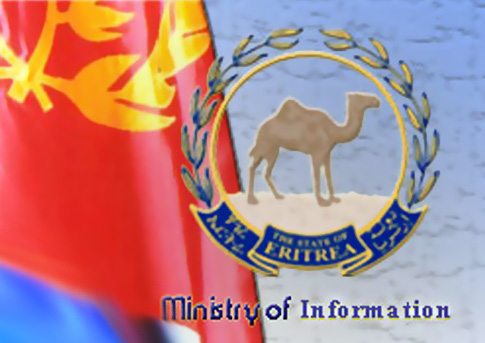On Wednesday this week, Prime Minister Meles received a special envoy with a message from President Omar Al Bashir. The message brought by Dr. Mustafa Osman Ismael, an adviser to President Bashir, who also met with AU officials. It asked Prime Minister Meles Zenawi to mediate in the conflict between Sudan and South Sudan, and for Ethiopia to use its close relations with the two Sudans to broker peace. Both Sudan and South Sudan regard Ethiopia as a neutral partner, and Addis Ababa has hosted the series of talks between the two sides under the auspices of the African Union’s High-Level Implementation Panel in recent months. The Prime Minister told Dr. Ismail that Ethiopia would do its level best to help Sudan and South Sudan to resolve their problems peacefully, and extend every effort for the peaceful resolution of the conflict between the two countries. Prime Minister Meles also noted that Ethiopia will support the efforts being undertaken by the African Union to solve the problem peacefully.
Dr. Ismail subsequently told journalists that his discussion with the Prime Minister had focused on ways to solve the conflict between Sudan and South Sudan. He said the trip was intended to "ask those with influence" to persuade South Sudan to withdraw from Heglig. President Al- Bashir had called several heads of states and sent his foreign minister to South Africa to work on the issue. Dr. Ismail warned South Sudan that it must immediately withdraw from Heglig or face counterattacks: "Time is running short, and our army is also getting ready." He said Khartoum was under pressure from Sudan’s public to liberate "the invaded territory".
Despite these efforts to encourage mediation, all this week, Sudan and South Sudan edged closer and closer to the all-out-war which neither can afford and from which neither would benefit. Increasingly angry rhetoric and support for each other’s rebels as well as dangerous brinkmanship risk escalating a still limited and contained conflict into a full-scale confrontation between the Sudanese Armed Forces and the Sudan Peoples’ Liberation Army. The immediate priority must be a ceasefire and security deal between Sudan and South Sudan, but equally important are finding solutions to unresolved post-referendum issues and the unimplemented provisions of the Comprehensive Peace Agreement which the AU High-Level Implementation Panel under the chairmanship of Thabo Mbeki has been trying to resolve during the intermittent talks between the two sides in Addis Ababa over the last few months.
The U.S. Special Envoy to Sudan and South Sudan, Princeton Lyman, said on Wednesday that the two countries were “at war” and warned that the conflict would be likely to spread if South Sudan didn’t withdraw from Heglig which it has so far refused to do. His statement came as the UN Security Council has begun to consider actions to take to try and stop hostilities. Earlier in the week, Ambassador Susan Rice, the US Permanent Representative to the United Nations and this month’s Council President, said that "Council members expressed grave concern over the situation and committed [themselves] to make every effort to convince the parties to cease hostilities and return to the negotiating table." Ambassador Rice said the Security Council has promised to urgently discuss the crisis. Council members reiterated demands that South Sudan should withdraw from Heglig and that the Sudanese Armed Forces should end all bombardment of South Sudan. Council members were told by Thabo Mbeki that both sides were locked into a “logic of war”, and that Khartoum believed that South Sudan was seeking regime change in Sudan. Ambassador Rice said that if that was the case then Khartoum’s objective would also be regime change. She hoped this was no more than rhetoric. Members of the Security Council have made it clear they expect the two presidents to meet and negotiate an immediate ceasefire. This should be based on the 29 June 2011 Agreement on Border Security and the Joint Political and Security Mechanism, as well as the 10 February 2012 Memorandum of Understanding on Non-Aggression and Cooperation.
Certainly, there is general expectation that it is time for the UN Security Council to reassert itself to preserve international peace and security, mobilize all possible leverage to get the two parties back to negotiations, and to agree to activate the Joint Border Verification and Monitoring Mechanism (JBVMM), as well implement the border monitoring tasks outlined for the UN Interim Security Force in Abyei (UNISFA) in Resolution 2024 (2011), particularly near Heglig and Jau. The parties and UNISFA need to operationalize the JBVMM to investigate and verify claims made by each side that the other is undermining peace or violating existing and future agreements.
Neither country can afford another conflict, although they appear to be in Mr. Mbeki’s words, trapped in the "logic of war", Both leaders have been stubbornly sticking to their positions, while indulging in increasingly aggressive rhetoric. President Al-Bashir told Egypt’s foreign minister he would resume negotiations only after southern forces left Heglig (which produces half of Sudan’s oil). He said Sudan reserved the right to respond to the occupation of Heglig "in any manner that guarantees its security, sovereignty and stability".
The two previous civil wars in Sudan each cost an estimated 1 to 2 million lives. If another one war is allowed to happen, the possibility of two viable and peaceful Sudanese states will be lost for another generation and hundreds of thousands more people may die.
Source: A Week in the Horn – April 20, 2012 issue.
*****************
Check the Sudan archive or the South Sudan archive for previous and forthcoming posts.





